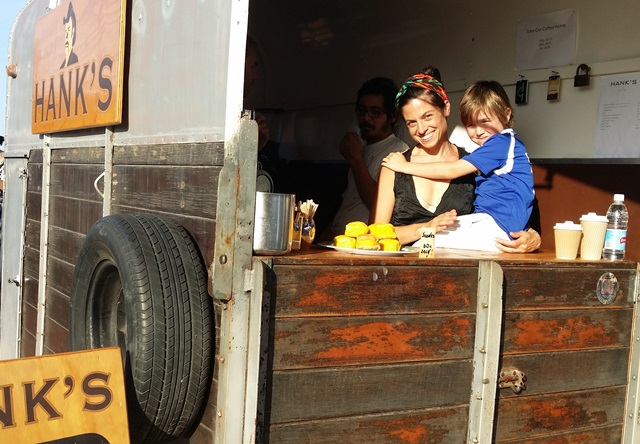How are your new year’s resolutions going? Out the window yet? A few years ago I started thinking about different ways to join the ‘better me in January’ brigade and eventually I settled on the following list. It worked so well last year (and lasted well beyond January) that I thought I’d do it all again in 2023.
Here are ten ideas with accompanying questions I guarantee will make your new year at least a little happier. Who knows, they could even change your life.
1.Curation: Information is coming at us from everywhere. Whatever mode you are tuning into make sure it’s a positive one. What the world does not need now is more hysteria.
Ask yourself: Who am I spending my time with? What am I reading? What am I consuming online? Is it positive? How does it make me feel?
2. Calm: Whatever you need to do to find peace / calm do it. Learn how to calm yourself, even when the whole world is spinning around you.
Ask yourself: Am I anxious? Have I moved my body today? Can I be still? Am I OK? What do I need right now?
3. Grief: Take time to grieve for life as it was. While we may again experience something that looks like the ‘normal’ we once knew, by and large the world is different. We are different. Grieve now and build your strength and you will then be well placed when larger waves of change, ones that knock on your own back door come along.
Ask yourself: How do I feel today? Am I sad? What do I miss? What do I love about now?
How are your new year’s resolutions going? Out the window yet? A few years ago I started thinking about different ways to join the ‘better me in January’ brigade and eventually I settled on the following list. It worked so well last year (and well beyond January) I thought I’d do it all again in 2023.
Here are ten ideas with accompanying questions I guarantee will make your new year at least a little happier. Who knows, they could even change your life.
1.Make time to curate what’s coming at you: Information is coming at us from everywhere. Whatever mode you are tuning into make sure it’s a positive one. What the world does not need now is more hysteria.
Ask yourself: Who am I spending my time with? What am I reading? What am I consuming online? Is it positive? How does it make me feel?
Try this: Snooze people that annoy you on social media and if they are still at it post snooze just unfriend or unfollow them. Focus on information (and sources of information) that are useful, enable you to provide service or otherwise light you up. If it doesn’t feel good chances are you don’t need it in your life.
2. Find a pathway to calm: Whatever you need to do to find peace / calm do it. Learn how to calm yourself, even when the whole world is spinning around you.
Ask yourself: Am I anxious? Have I moved my body today? Can I be still? Am I OK? What do I need right now?
Try this: Set an alarm for 15 minutes and focus on nothing but your breath. Every time your mind wanders come back to the breath. Find something that makes you smile no matter what. Do that. When you do take a moment to notice how you feel, what you are thinking, smelling, what you taste (you’ll draw on this again in point 9)
3. Take time to grieve for life as it was. The events of recent years have situated us in a different world. While things may look a little ‘normal’ again they aren’t, we aren’t. Grieve now and build your strength and you will then be well placed when larger waves of change, ones that knock on your own back door come along.
Ask yourself: How do I feel today? Am I sad? What do I miss? What do I love about now?
Try this: Think about the things and people you miss, the things you are angry about and the things that you wish to now say goodbye to. Write these things on little pieces of paper and find a safe place to burn, shred or flush them. Take some time to honour the role these things played in your life and quietly thank them. With this think about the positive sides of change and what you are looking forward to.
4. Seek out and support the leaders you trust: The way leadership works is changing. Look for leaders who are kind and resilient. Look for leaders who listen, who will act and who will make the tough decisions for the greater good. These leaders may not come from the places we would usually expect. However, when you find these people nurture them, support them and back them.
Ask yourself: What kind of a leader am I? Am I showing up? Am I being kind? Who do I look up to? Have I made my support known? Is there a leader I trust? Is there someone I need to nudge to consider a leadership position?
Try this: Get involved in a political movement you support, take some time to learn about candidates before you vote (with an election looming in NSW it’s a great time for residents to do so). Tell a leader you admire that you appreciate what they do. Chances are they didn’t consider themselves a leader in the first place, you may change their life’s trajectory.
5. Your consumption patterns: The world simply cannot sustain our consumption at the current rate. From energy to water usage, travel to shoving processed calories into our gobs.
Ask yourself: What do I waste? How can I not waste that through recycling, going without, finding an alternate or other means? How can I consume more slowly? What can I share rather than own?
Try this: buy second hand, seek out recycling opportunities (e.g. there are some great social enterprises in most communities recycling things from plastics to clothing to toys. Their greatest challenge is getting the raw materials).
6. The way we care for one another: Whether we are talking about those closest to us, people we interact with in a work environment or those most marginalised in our communities we always have a responsibility as a human to care. Caring does not have to mean giving away all of our resources, it doesn’t have to mean supporting those that do not want to change. But it does mean placing kindness at the centre of any conversation.
Ask yourself: What resources can I share with others? What can I financially and/or emotionally afford to give? Are my interactions with others kind?
Try this: Ask someone how they are and as you do look them in the eyes. Then you’ll really know. Allocate resources that you can afford (which could be your time, money or other kind of capacity) and give regularly.
7. Enhance your understanding of local: Living in a small community it’s easy to see how important local is to our business community. Local is also about eating what’s produced close by and seasonally, it’s about visiting local places and understanding local cultures. If it all goes to hell in a handbasket your knowledge of what is local will be even more critical.
Ask yourself: What local plants can I eat? Which are used for medicine? Where are safe places I can go to? How can I meet more of my local community?
Try this: Visit your local museums and art galleries, have a staycation in your town and visit places you don’t usually have time to go. Seek out the local farmer’s produce stalls and buy local. If you don’t know where they are take some time to discover them
8. Think: In our busy world it’s difficult to find time to think clearly. While we are being encouraged to think on our feet — and that is a relevant skill in many situations, we must also make time to think. To logically think through our options, our future, our new normal.
Ask yourself: What important decisions do I need to make right now? What information do I need to make that decision? Have I made time to think it through without my thoughts being cluttered? What questions have I asked myself of late? Is my mind still or is it all over the place? What do I need to bring calm?
Try this: Next time you have to make a decision put it off for at least 15 minutes and if you can overnight. Notice how your decision changed in time.
9. Your ability to remain centred: It’s all too easy for emotions to escalate when things are unpredictable. Learn how to centre yourself and when the crazy thoughts whisk you into a state of panic understand how to steady yourself.
Ask yourself: How can I find an even keel? What methods work for me to calm when my mind races? What thoughts bring me back to me?
Try this: Visualise that calm place you took yourself to in the second point. Remember the sounds, the smells, taste and thoughts you have when in your calm place. Sit with this for a few moments as you centre yourself.
10. Let go of things you can’t control: Like it or not you can’t control everything.
Ask yourself: What will I willingly release? What do I need to learn? How will I learn that? What changes will I make immediately and which will I embrace over time?
Try this: Make a list of the things that are currently bothering you. As you look through the list put a tick next to the things you know are out of your control and willingly let them go for a greater source to sort out. Know that in time this will happen.
Wishing you a joyous 2023.


